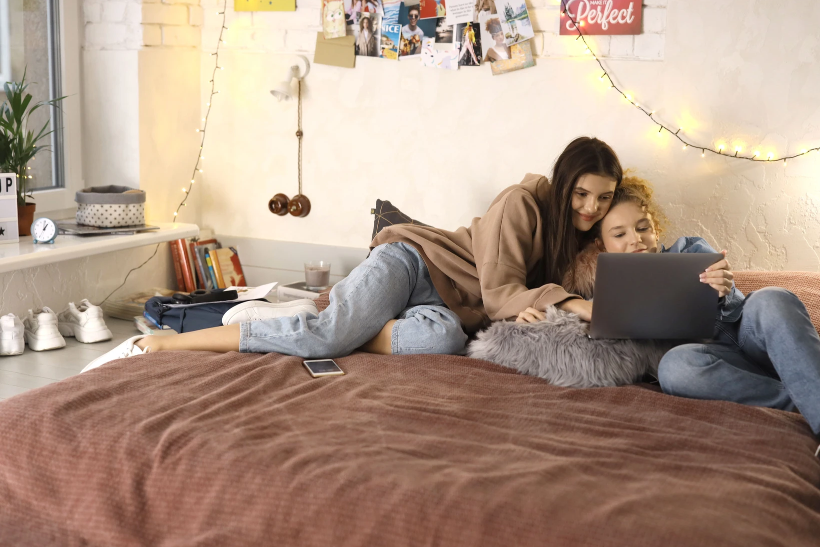Introduction: Why Sleepover Safety Matters
Sleepovers are a childhood tradition — filled with laughter, movies, games, and the thrill of being away from home for the night. They offer children the chance to grow socially and emotionally in new environments. But for many parents, sleepovers also bring a quiet concern: How do I ensure my child is safe while still allowing them to enjoy this milestone?
At Lukas Winward, we believe in empowering families with thoughtful guidance rooted in empathy, awareness, and practical solutions. Sleepover safety isn’t about living in fear — it’s about informed decision-making. Whether your answer is “yes,” “not yet,” or “no,” what matters most is that your decision is based on clear values and honest conversations.
Let’s explore the benefits, the risks, and the proactive steps you can take to keep your child safe — without taking away the magic of childhood experiences.
The Benefits of Sleepovers
While they aren’t essential for development, sleepovers can offer meaningful social and emotional growth.
- Social Bonding
Late-night chats, shared secrets, and pillow forts build trust and deepen friendships. These experiences help children learn empathy, cooperation, and connection in a relaxed environment.
- Confidence and Independence
For many kids, spending a night away from home helps build resilience and independence. It can also strengthen their ability to adapt and self-regulate — important steps in their emotional development.
- Treasured Memories
Sleepovers often become lasting memories — filled with joy, excitement, and a sense of adventure. These moments create a foundation of confidence and belonging.
The Risks of Sleepovers
Despite the benefits, sleepovers can expose children to potential emotional and physical risks.
- Risk of Sexual Abuse
Studies show one in five girls will experience sexual abuse before age 18 — most often by someone they know. While most sleepovers are harmless, parents must consider who else will be present and what supervision is in place.
- Lack of Control Over Environment
At someone else’s house, you lose oversight. From internet access to older siblings or unfamiliar adults, the risks may not be immediately visible.
- Sleepovers Are Optional
Your child doesn’t need sleepovers to thrive. Sports, school, and community activities offer plenty of opportunities for connection and growth. Saying no to sleepovers doesn’t hinder development — it reflects your values and caution.
How to Promote Sleepover Safety
If you choose to allow sleepovers, proactive steps can ensure your child feels confident and protected.
- Know the Hosts: How well do you know the other family? Who else will be in the home?
- Supervision: Will a trusted adult be present all night?
- Discuss Boundaries: Talk openly with your child about body safety, media limits, and how to respond if they feel uncomfortable.
- Safe Word System: Create a code word or emoji your child can use to signal they want to be picked up.
- Trust Your Instincts: If anything feels off, it’s okay to decline. No explanation required.
Talking to Kids About Sleepover Safety
- Keep the tone light and age-appropriate. Frequent small chats are more effective than one big lecture.
- Use real names for body parts and explain consent in simple terms.
- Role-play common scenarios: “What would you do if you felt uncomfortable?”
- Reassure them: “You can call me anytime, no questions asked.”
Tips for Talking to Other Parents
- Be clear and polite: “I always ask a few questions before any sleepover to help my child feel safe.”
- Ask about adults in the home, internet access, and sleeping arrangements.
- If you feel uneasy, it’s okay to say no. Your child’s safety comes first.
Conclusion: Trusting Your Parenting Compass
Sleepovers can be a joyful part of childhood — but only when they align with your comfort and confidence. Whether you choose to allow them now, later, or not at all, remember: you know your child best.
At Lukas Winward, we advocate for informed, intentional parenting. The more prepared and connected we are, the better we can protect our kids — not by wrapping them in fear, but by equipping them with knowledge, communication, and trust.
When in doubt, trust your instincts. You’re not just saying “yes” or “no” to a sleepover — you’re teaching your child what safety, respect, and self-worth truly mean.
For more details, Visit: https://www.lukaswinwardcounselling.com.au/





Comments